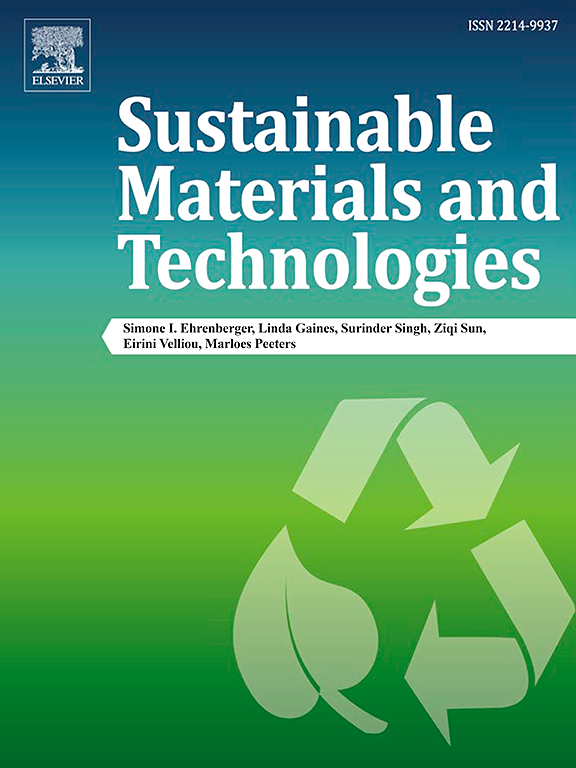Potential and challenges of recycled polymer plastics and natural waste materials for additive manufacturing
IF 8.6
2区 工程技术
Q1 ENERGY & FUELS
引用次数: 0
Abstract
Global warming and climate change have emerged as pressing issues closely associated with human activity and the manufacturing sector, significantly contributing to climate change. Additive manufacturing (AM), or 3D printing (3DP), shows great promise as an alternative manufacturing method but raises concerns regarding plastic waste generation. To tackle this challenge, recycling polymer plastics and exploring natural waste materials for 3DP offer sustainable solutions. However, a comprehensive understanding of both aspects currently needs to be improved. This study aims to evaluate the current trends and advancements in sustainable biocomposites research, identify key topics and emerging areas of interest, investigate the recycling of waste materials for 3DP, assess commonly recycled polymer plastics, examine the thermomechanical properties of sustainable composites, and identify research gaps for future directions. The analysis involved collecting and evaluating 91 articles from the Scopus database. The findings underline the growing demand for sustainable approaches, the potential of recycled polymer plastics and natural waste materials, and the need to improve mechanical properties. Stakeholders are encouraged to adopt sustainable manufacturing practices and embrace circular economy models by utilizing recycled polymer composites and waste materials to produce biodegradable polymer composites. Future research should explore advanced 3DP methods to enhance mechanical properties, thereby contributing to sustainable manufacturing practices and addressing the challenges of climate change.将再生聚合物塑料和天然废料用于增材制造的潜力和挑战
全球变暖和气候变化已成为与人类活动和制造业密切相关的紧迫问题,而制造业又是造成气候变化的重要因素。快速成型制造(AM)或三维打印(3DP)作为一种替代制造方法前景广阔,但也引发了对塑料废物产生的担忧。为了应对这一挑战,回收聚合物塑料和探索用于 3DP 的天然废料提供了可持续的解决方案。然而,目前对这两方面的全面了解还有待提高。本研究旨在评估可持续生物复合材料研究的当前趋势和进展,确定关键主题和新兴关注领域,调查用于 3DP 的废弃材料的回收利用情况,评估常见的回收聚合物塑料,研究可持续复合材料的热力学特性,并确定未来方向的研究缺口。分析工作包括收集和评估 Scopus 数据库中的 91 篇文章。研究结果强调了对可持续方法日益增长的需求、再生聚合物塑料和天然废料的潜力以及改善机械性能的必要性。我们鼓励利益相关者采用可持续的制造方法,利用回收的聚合物复合材料和废料生产可生物降解的聚合物复合材料,拥抱循环经济模式。未来的研究应探索先进的 3DP 方法,以提高机械性能,从而促进可持续制造实践,应对气候变化的挑战。
本文章由计算机程序翻译,如有差异,请以英文原文为准。
求助全文
约1分钟内获得全文
求助全文
来源期刊

Sustainable Materials and Technologies
Energy-Renewable Energy, Sustainability and the Environment
CiteScore
13.40
自引率
4.20%
发文量
158
审稿时长
45 days
期刊介绍:
Sustainable Materials and Technologies (SM&T), an international, cross-disciplinary, fully open access journal published by Elsevier, focuses on original full-length research articles and reviews. It covers applied or fundamental science of nano-, micro-, meso-, and macro-scale aspects of materials and technologies for sustainable development. SM&T gives special attention to contributions that bridge the knowledge gap between materials and system designs.
 求助内容:
求助内容: 应助结果提醒方式:
应助结果提醒方式:


